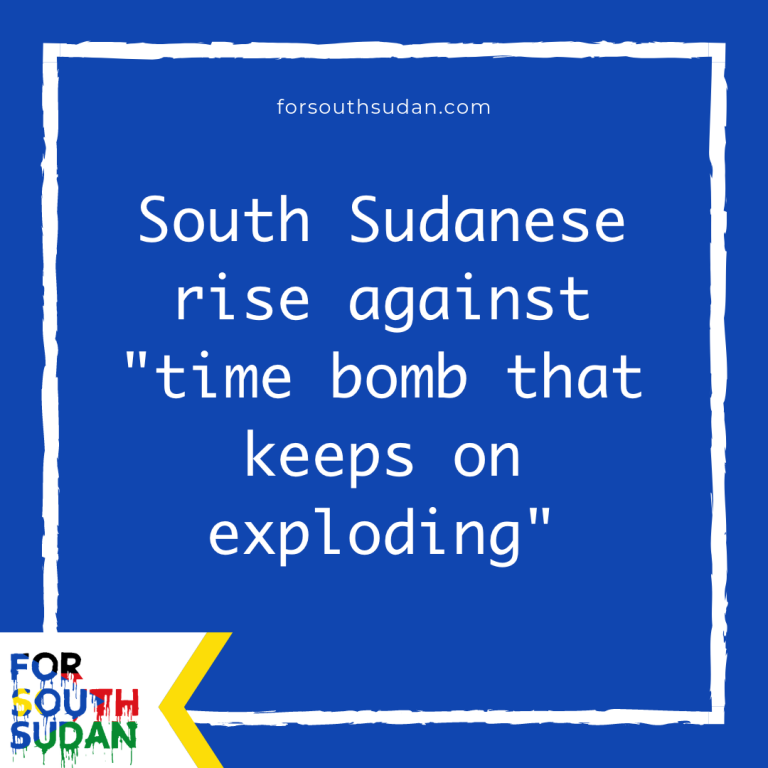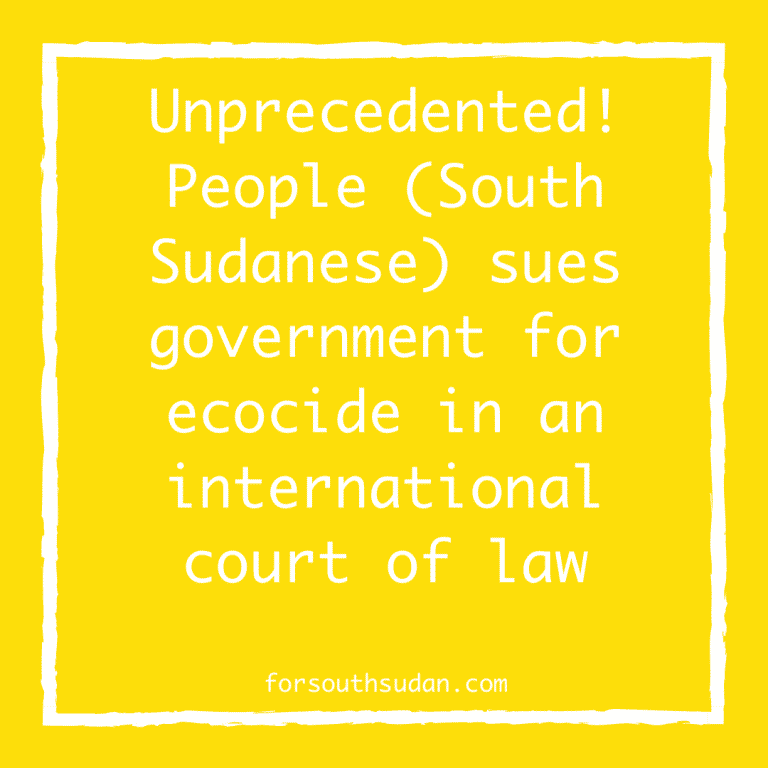Saving Malong
By Chol Thomas Dongrin, Sign of Hope
22.11.2017
The clinic is a beacon of hope for the people in Rumbek, a town in central South Sudan. The country’s bloody civil war has vastly augmented the number of people seeing treatment at it, as local residents are being accompanied by an ever-greater number of refugees.
Many of the people waiting patiently in line for treatment are parents and their children, who are desperately ill with ailments arising from malnutrition. One of them is Malong.
Malong’s first year of life has been excruciatingly tough. He has been hungry for most of it. This has hurt his mind and his tiny body, which suffers from the vomiting, fever and coughing ensuing from a weakened immune system. Malong’s mother is Amuong Malual. To save her son, Amuong has brought him to the clinic in Rumbek, which operates a program designed to save malnourished children by giving them the special foods and medical care required.
It’s hard to bring a smile to Malong Majok’s face. Quite understandably so. The infant has had little to smile about during his year on this planet. He has known only hunger and illness – as shown by the sadness on his face, by his inability to sit still, by his constant crying.
Malong’s luck is about to change. His mother has brought him to the clinic supported by Sign of Hope in Rumbek, South Sudan, where the little boy has been examined by Samuel Chol Ajunog, one of the clinic’s nutrition specialists. Samuel has admitted Malong to the dedicated program.
The first task at hand is to put a halt to Malong’s loss of weight and lack of appetite, and to put an end to his vomiting, fever and coughing. After providing Malong with the requisite food and medicines, the clinic’s staff keeps a close eye on his progress.
While Malong is being cared for, his mother tells the story of his falling ill. “It all started three months ago. Along with his sister, he was living in a cattle camp. It was the dry season and our livestock didn’t have enough to drink. So our cows didn’t produce enough milk. And that’s what our children need to keep going.” The weather turned cold. That caused Malong to get sick.
“Malong started running a fever. He got diarrhea and chest pains. Then he started losing weight. So I took him to a clinic in our area. They prescribed medicine, which we couldn’t afford. Then we had a stroke of luck. A friend told me about the clinic in Rumbek. She said they treated malnourished children. So I brought Malong here. And then something else wonderful happened – we got the support from the other mothers who are getting treatment for their children. They tell me not to worry, that my child will get healthy again,” reports Amuong.
Crisis in the Western Lakes
Malong is by no means the only child – or person – going hungry in the Western Lakes, which is one of South Sudan’s 28 states. Quite the opposite. Famine has the Western Lakes in its deadly grasp. This is exploding the number of cases of malnutrition and illnesses caused by it and requiring treatment, report staff at the clinic in Rumbek. Especially susceptible are the elderly, pregnant women and children. The lack of food – and especially nutritious items – weakens residents’ immune system. The upshot: they get sick more often, more seriously and quicker.
The lack of food is caused by the conflicts roiling the region, by cattle rustling by gangs rampaging around the country, and by catastrophic weather, which has yielded bad harvests. The result: local markets have very little to be purchased – and what’s there is too expensive for most residents.
Robbed of their livestock by rustlers or by drought and stripped of their harvests by bad weather, farming families often subsist on one small meal a day.
Totally dependent on help
The other children being treated at the clinic are from both local families and from refugee ones. The latter have fled the wars raging in their regions – and especially those in northern South Sudan – for the relative safety of Rumbek. This region has another huge attraction for them: the local clinic’s good – and free of charge – medical treatment.
Most of the refugees in Rumbek live in the Ngang-kot, Mayen-atol and Khartoum Jadid camps, which are located on the outskirts of the town. These refugees lack the essential of survival in Africa – the support of extended families – which is often the only kind of ‘social security’ available. One reason for the refugees’ flight was the wish not to further burden their relatives, who themselves are dealing with hunger and other forms of deprivation.
Manyang Meen is one of the refugees. He is 50 years old and his five children. They live in the Khartoum Jadid camp. This is what he has to say: “Our lives are horrible. We have virtually nothing to eat. We are dependent upon the goodwill of others and upon the assistance provided by humanitarian organizations. We can’t grow any food here. A small child and two old persons died of hunger here not too long ago. We spend every day trying to find something to eat.”
Malong – a big hope for a small child!
Malong’s family are subsistence farmers in Biling, a village 25 kilometers to the east of Rumbek. The family subsists – or tries to – from its harvests of peanuts, corn, sorghum and other grains. To survive the dry season, the family sends some of its members to a cattle camp, despite its lack of hygiene and – frequently – of food. This lacks are not conducive to small children’s health.
“There was a drought and it ruined our harvest,” relates Amuong. “Sorghum is harvested in December. But since it stopped raining in October, there was little to be harvested.” This was one prime cause of the family’s hunger.
Two weeks of treatment, and Malong is showing initial signs of improvement, signs giving rise on the part of his mother to a great hope. “Malong fell ill in the cattle camp. It made him unable to keep any food down. His digestion was ruined and he had dysentery. The staff at the clinic gave Malong medicine to take care of his fever and dysentery. This has really helped him,” says his mother, who adds: “I now have the great hope that my son will soon be all better, and that he will soon be able to return home to his siblings. I thank all of the clinic’s staff members and Sign of Hope for the treatment, caring and support,” she concludes.




